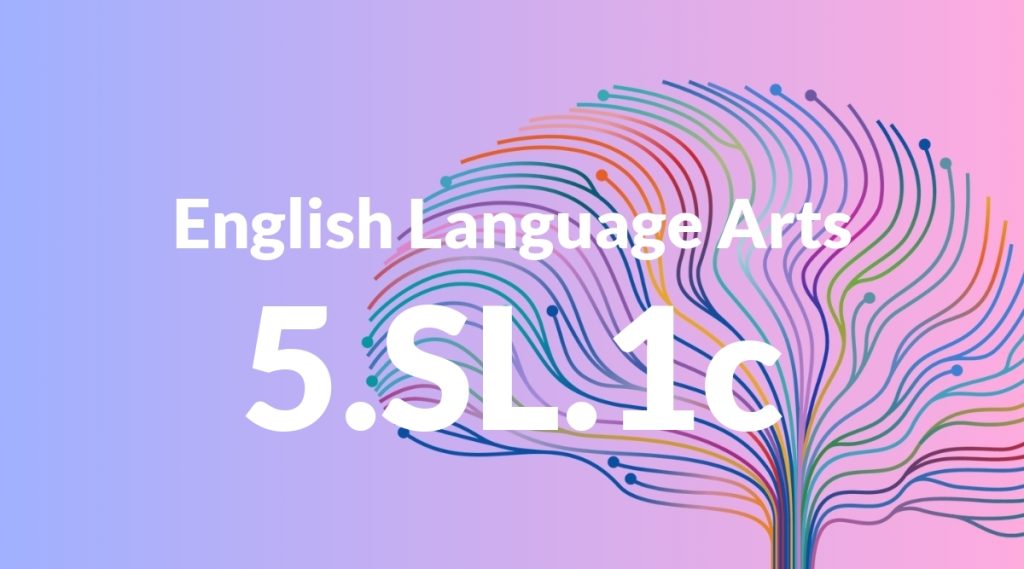Standard: 5.SL.1c – Pose and respond to specific questions by making comments that contribute to the discussion and elaborate on the remarks of others.
Grade level: Grade 5
Subject: English Language Arts
Domain: Speaking & Listening
Teacher Overview
This standard emphasizes the importance of active participation in discussions. Students are expected to pose and respond to questions in a way that advances the conversation and adds depth to the dialogue. This skill is crucial for collaborative learning and effective communication. Before tackling this standard, students should be comfortable with basic questioning and answering techniques and understand the importance of listening to others.
After mastering this standard, students will be able to engage in more complex discussions, synthesizing information and presenting well-formed arguments.
Common Misconception 1
A common misconception is that any comment, regardless of its relevance, contributes to the discussion. This is incorrect because irrelevant comments can derail the conversation and make it less productive.
Intervention 1
Use role-playing activities where students practice making relevant comments. Provide feedback on how well their comments relate to the topic.
Common Misconception 2
Another misconception is that elaboration means simply repeating what others have said. This is incorrect because true elaboration involves adding new information or perspectives.
Intervention 2
Encourage students to think critically about the discussion and ask them to add unique insights or additional information. Use prompts to guide them.
Prerequisite Knowledge
Students should have a basic understanding of how to ask and answer questions, listen actively, and respect others’ viewpoints during discussions.
Subsequent Knowledge
Students will develop advanced communication skills, including the ability to synthesize information from multiple sources and present coherent arguments.
Instructional Activities
- Role-playing different discussion scenarios
- Group projects with assigned discussion roles
- Peer review sessions with structured feedback
- Classroom debates on various topics
- Collaborative book club meetings




